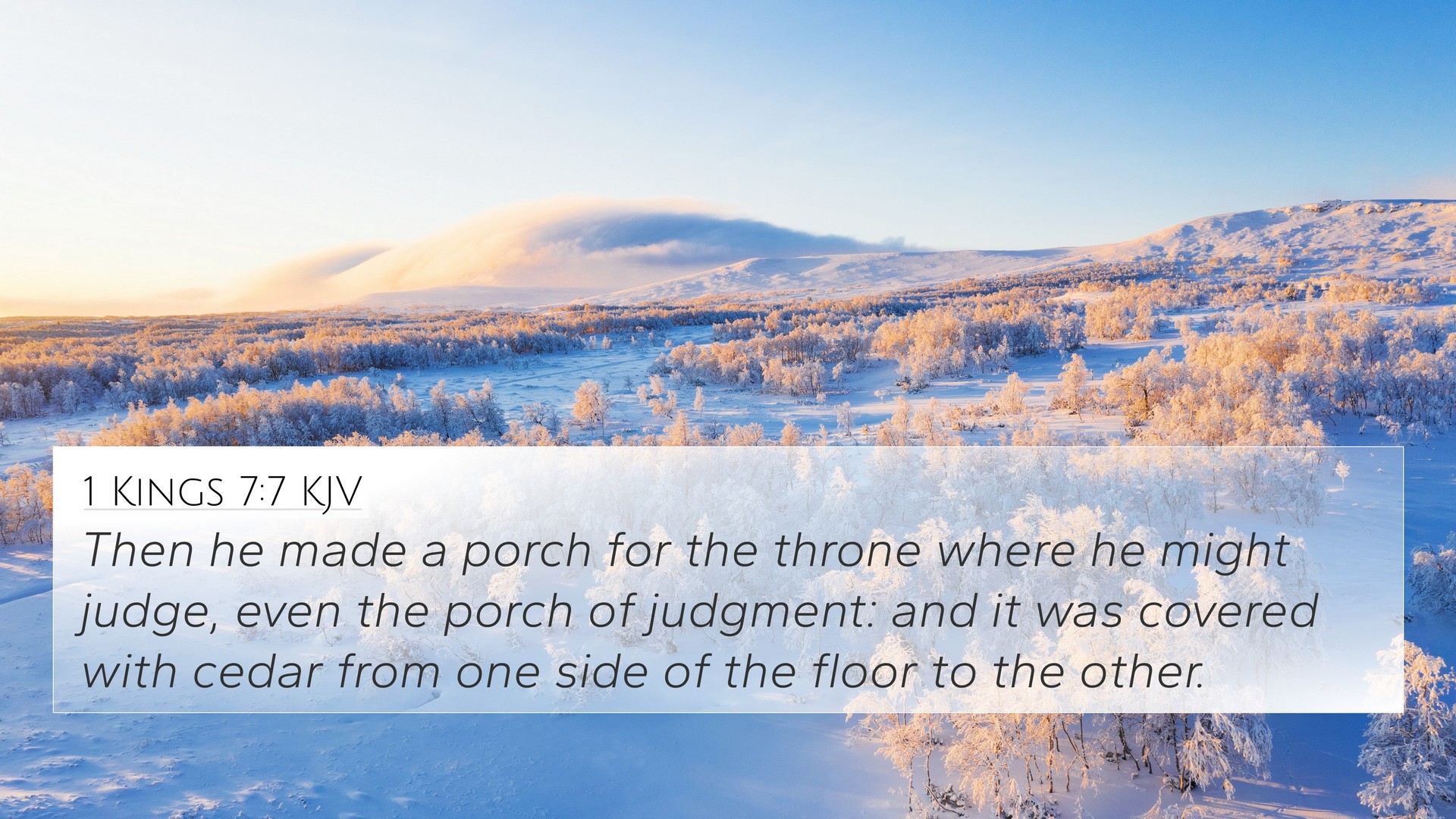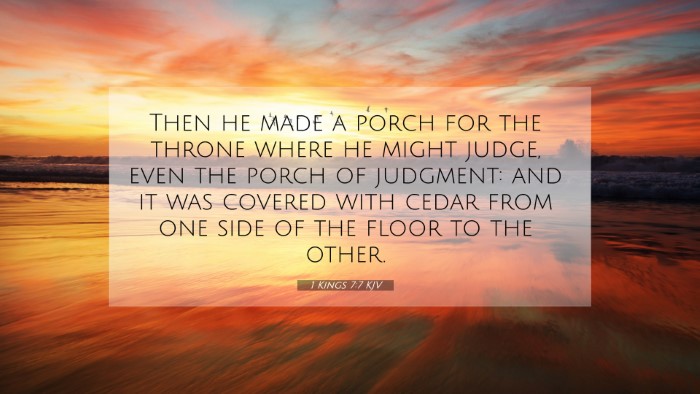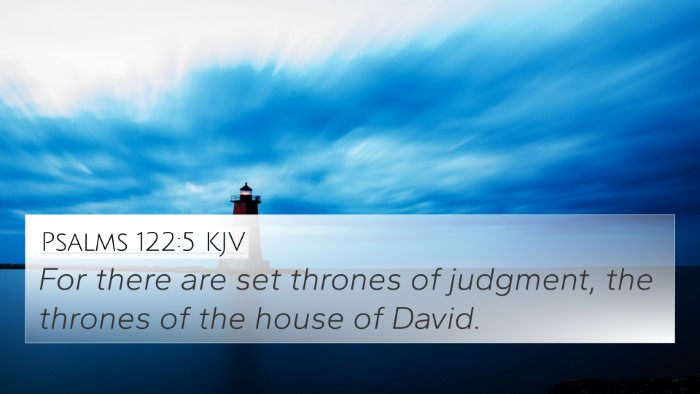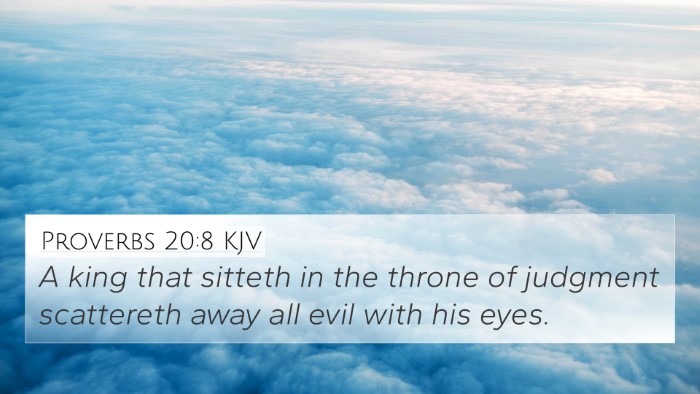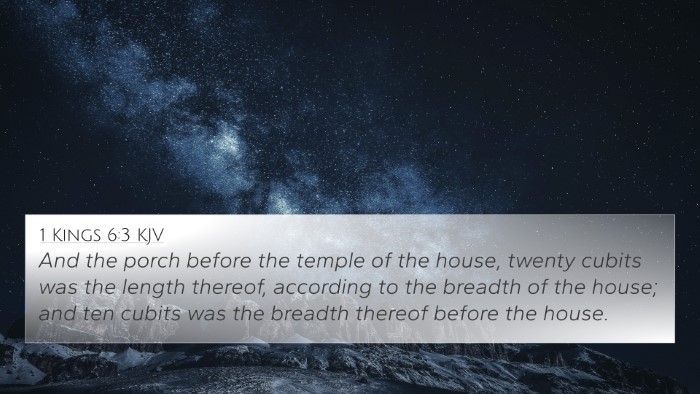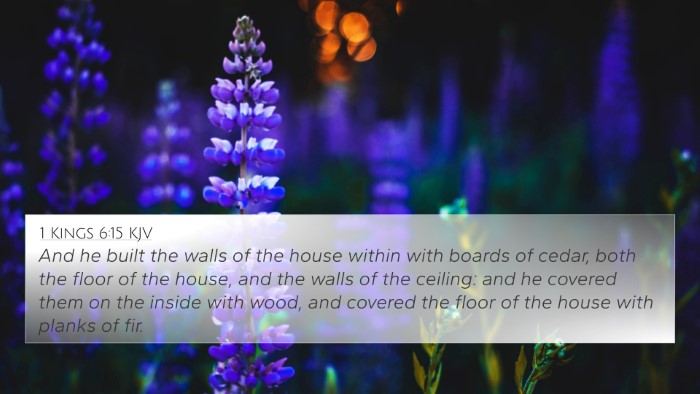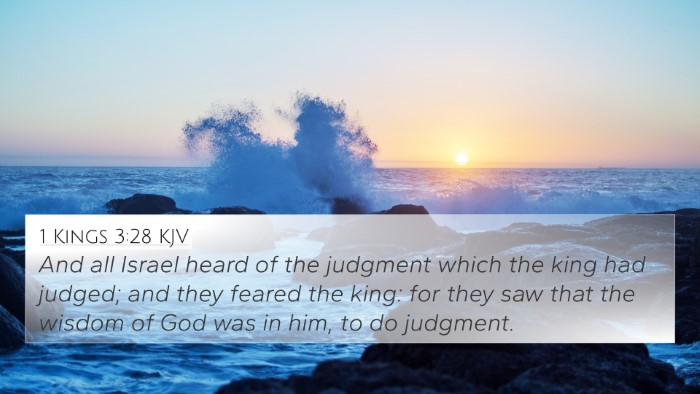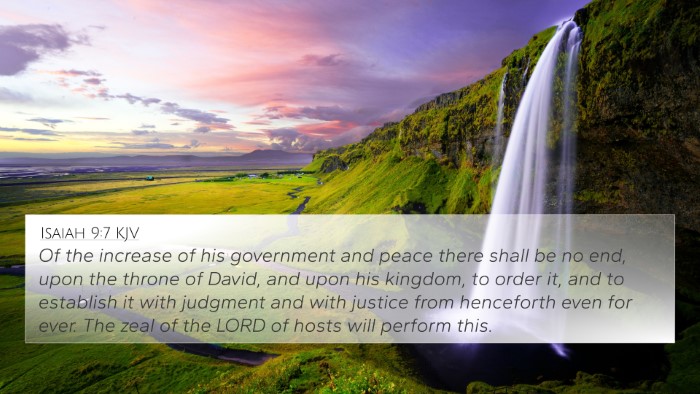Understanding 1 Kings 7:7
The verse 1 Kings 7:7 states:
"Then he made a hall for the throne, the hall of judgment, where he was to judge; and it was covered with cedar from floor to ceiling."
This passage describes a pivotal architectural feature related to King Solomon's reign, emphasizing the importance of justice and wisdom in governance.
Insights from Public Domain Commentaries
Matthew Henry's Commentary
Matthew Henry highlights that the hall for the throne represents a place where Solomon would exercise authority and make judgments. This architectural feature signifies:
- Justice: The hall symbolizes Solomon's commitment to ruling justly and fairly, reflecting God's heart for justice.
- Royal Authority: A throne room signifies power, and the grandeur of the hall represents Solomon's authority given by God.
- Wisdom: The hall's purpose was for judgment, pointing to Solomon's renowned wisdom, a divine gift for his role as king.
Albert Barnes' Notes
Albert Barnes emphasizes that the description of the hall constructed for judgment signifies:
- Divine Design: This hall was part of God's plan for governance, showcasing how God directed Solomon in his building endeavors.
- Symbol of Righteousness: The cedar covering symbolically encourages the pursuit of righteousness in exercising judgment.
- Importance of Leadership: The constructed hall indicates the essential nature of godly leadership and administration.
Adam Clarke's Commentary
Adam Clarke points out that the 'hall of judgment' serves as a key aspect of governance and the following points are drawn:
- Judgment Seat: It signifies the authority by which Solomon would judge disputes, emphasizing the responsibility of leaders.
- Symbol of Peace: A hall dedicated to justice represents a kingdom characterized by order and peace.
- National Unity: This place of judgment fosters national unity, where people can seek resolutions fairly.
Cross References and Thematic Connections
Understanding 1 Kings 7:7 benefits from examining several biblical cross-references that highlight connections between scriptures. The following verses relate closely to the themes present in this passage:
- Psalm 72:1-2: A prayer for the king to judge with righteousness.
- Proverbs 16:12: Righteousness is integral to the king's rule.
- 2 Chronicles 9:4: Highlights Solomon's wisdom and the grandeur of his court.
- 1 Kings 3:9: Solomon's request for wisdom to discern between good and evil reflects the purpose of his judgment hall.
- Isaiah 9:6: A prophecy concerning the governance of the Messiah, emphasizing justice.
- Matthew 5:20: Jesus speaks on righteousness exceeding that of the Pharisees, relating to the call for a righteous rule.
- Romans 13:1-2: Discusses the authority of the governing bodies and the need for righteous leadership.
Thematic Interpretations and Application
This chapter not only relates to the historical significance of Solomon's reign but also extends into practical applications for contemporary readers:
- Leadership Principles: The importance of just and wise leadership remains relevant today as it was in Solomon's time.
- Importance of Justice: The role of justice in governance is a timeless principle; leaders are called to uphold righteousness.
- Constructive Authority: Understanding how authority can be constructive rather than oppressive is vital.
Conclusion
1 Kings 7:7 serves as a touchstone for understanding leadership, justice, and the divine foundation of governance in biblical history. By reflecting on the insights from various commentators and exploring thematic connections, readers can discern the enduring relevance of these principles for their lives.
